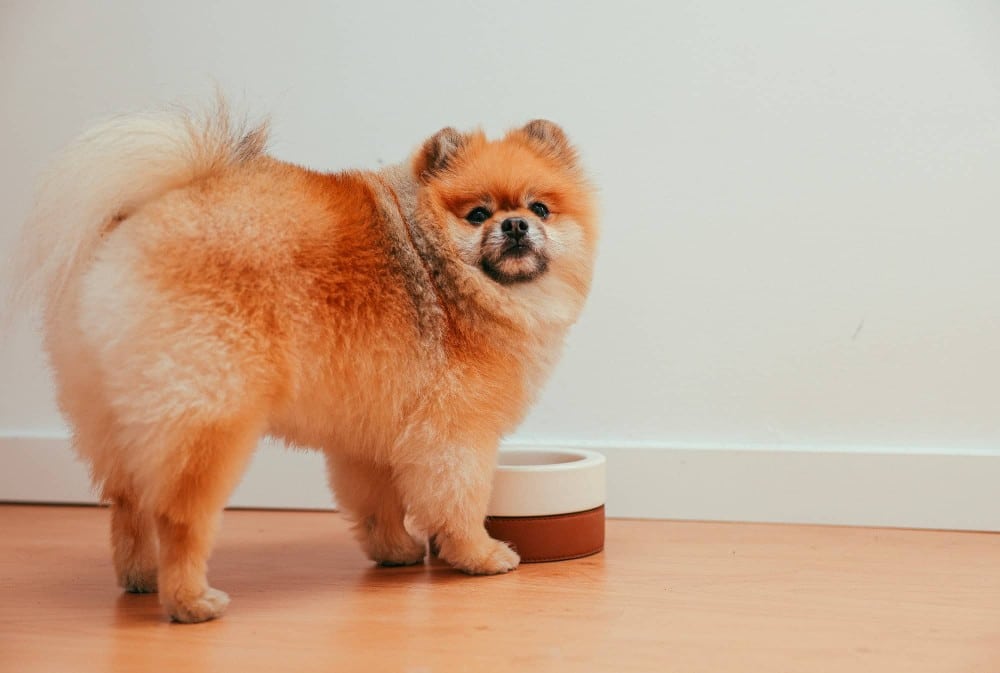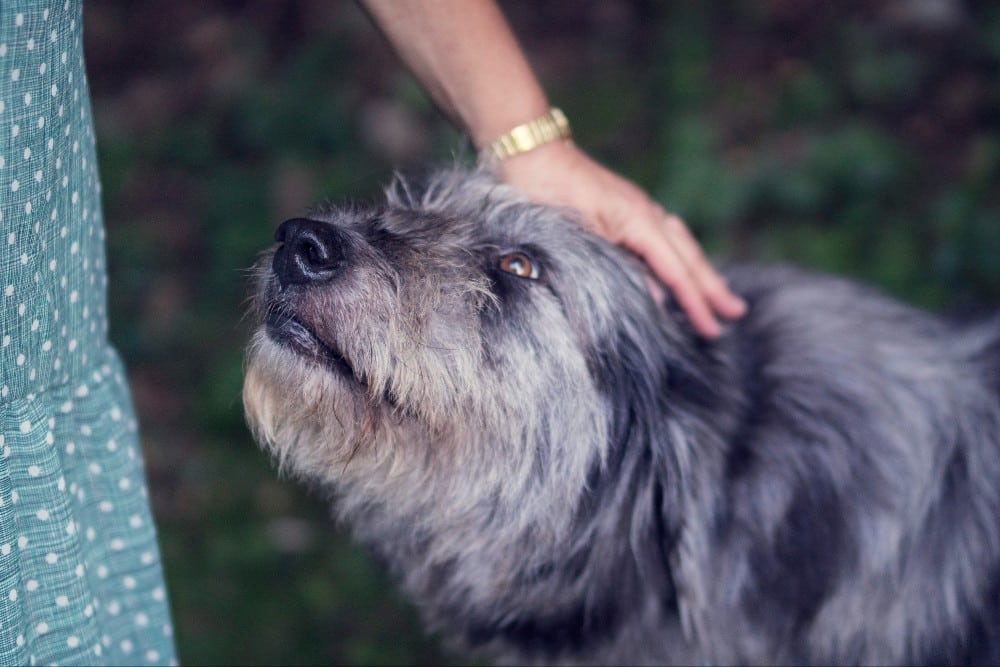Humans have been using coconut oil for centuries to care for their teeth. They still do. Some companies even make coconut oil toothpaste for people who prefer natural oils and extracts over chemical-based compositions. Indeed, evidence has shown that coconut can help eliminate and breakdown plaque-causing bacteria.
But can this natural, good-for-you oil also be used to care for your dog’s teeth? According to many, the answer is yes!
Dental disease can affect the overall health of your dog. Besides inflamed gums, terrible breath, loose teeth and pain while eating, if your dog’s mouth is infected, it can spread throughout their body, including your pup’s lungs, heart and kidneys. Dog dental care is important for the overall well-being of your furry best friend.
Related: 7 Natural Ways to Stop Bad Dog Breath
But if you’ve ever looked at the ingredients on a tube of canine toothpaste, you may find yourself in a world of multisyllabic chemicals. Dicalcium Phosphate, Anhydrous, Titanium Dioxide, Sodium Benzoate, Potassium Thiocyanate…and poultry digest. This is from the label of a popular brand of dog toothpaste.
If you’d rather go the way of mother nature, there are some very good reasons for using coconut oil to brush your dog’s teeth. But first, what exactly is coconut oil?
Coconut oil is extracted from the meat of a coconut. It’s one of the world’s richest sources of saturated fats, but this fat is good for you. It’s made up almost completely from multi-chain triglycerides (MCTs), which are metabolized differently than other saturated fats and are considered to have several health benefits. MCTs can be used as an instant energy source. When a fatty oil is used as energy, it’s not stored as fat by the body. By boosting the metabolism, it helps the body lose weight.
Coconut oil also provides many benefits when used as a doggy toothpaste. Its anti-microbial properties help remove harmful bacteria from your dog’s mouth, which in turn helps prevent plaque from developing.
Coconut oil is composed of around 50 percent lauric acid, an MCT that helps kills harmful bacterial, fungi and viruses. In fact, lauric acid is better at killing these pathogens that any other saturated fat. It is the lauric acid in coconut oil that kills the harmful bacteria Streptococcus mutans that causes decay, stinky breath,and gum disease in your dog’s mouth. Coconut oil also attacks another harmful bacterium called Lactobacillus, which causes tooth decay.
Related: 5 Easy Dog Treats You Can Make at Home to Freshen Your Dog’s Breath
By using coconut oil to brush your dog’s teeth, you’re also supplying him with a substance that can aid in digestion, immune response, improve their skin and coat and support his joints. And for fussy dogs that fight the taste of regular canine toothpaste, most dogs love the taste of coconut oil. If you start off by letting him just lick the oil off your finger or a toothbrush, you can get your dog used to the toothbrush gradually.
If you suspect your dog has dental disease, have him examined by a veterinarian. He will likely need a professional teeth cleaning first to get rid of impacted tartar and plaque. Then get your pooch used to a daily session with a baby toothbrush and coconut oil. His breath will smell sweet and his teeth will stay healthy and clean.
Related: Stinky Dog Breath? Here Are 4 Simple Toothpastes You Can Make at Home.



















